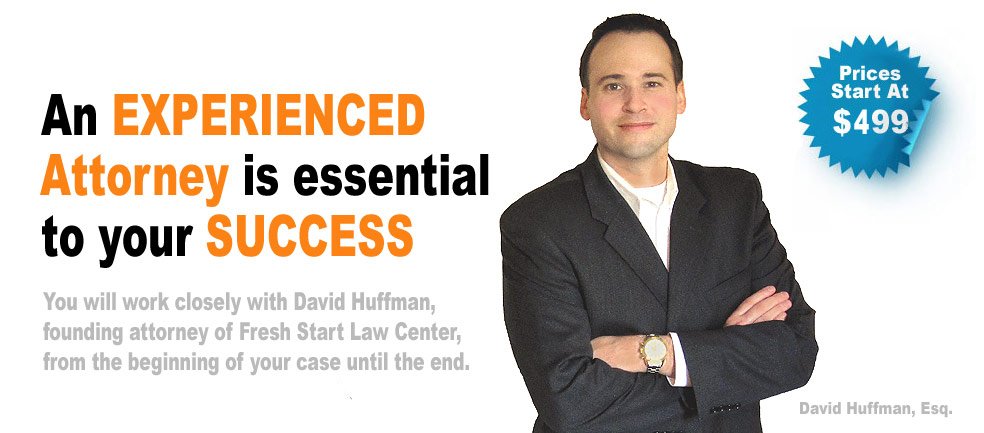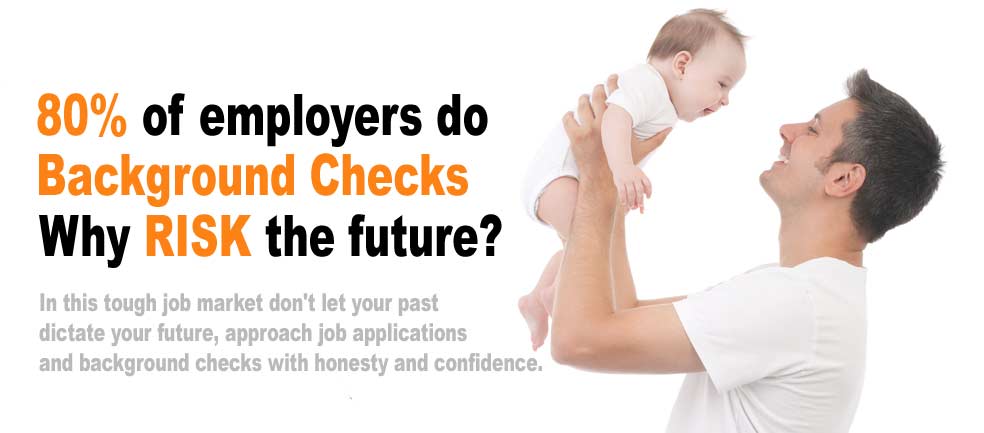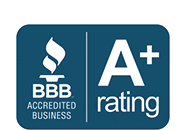California Penal Code 1210.1
Law Mandating Probation For Non-Violent Drug Offenses
See All Expungement Legal Services
(a) Notwithstanding any other provision of law, and except as provided in subdivision (b), any person convicted of a nonviolent drug possession offense shall receive probation. As a condition of probation the court shall require participation in and completion of an appropriate drug treatment program. The court shall impose appropriate drug testing as a condition of probation. The court may also impose, as a condition of probation, participation in vocational training, family counseling, literacy training and/or community service. A court may not impose incarceration as an additional condition of probation. Aside from the limitations imposed in this subdivision, the trial court is not otherwise limited in the type of probation conditions it may impose. Probation shall be imposed by suspending the imposition of sentence. No person shall be denied the opportunity to benefit from the provisions of the Substance Abuse and Crime Prevention Act of 2000 based solely upon evidence of a co-occurring psychiatric or dev opmental disorder. To the greatest extent possible, any person who is convicted of, and placed on probation pursuant to this section for a nonviolent drug possession offense shall be monitored by the court through the use of a dedicated court calendar and the incorporation of a collaborative court model of oversight that includes close collaboration with treatment providers and probation, drug testing commensurate with treatment needs, and supervision of progress through review hearings. In addition to any fine assessed under other provisions of law, the trial judge may require any person convicted of a nonviolent drug possession offense who is reasonably able to do so to contribute to the cost of his or her own placement in a drug treatment program.
(b) Subdivision (a) shall not apply to any of the following: (1) Any defendant who previously has been convicted of one or more violent or serious felonies as defined in subdivision (c) of Section 667.5 or subdivision (c) of Section 1192.7, respectively unless the nonviolent drug possession offense occurred after a period of five years in which the defendant remained free of both prison custody and the commission of an offense that results in a felony conviction other than a nonviolent drug possession offense, or a misdemeanor conviction involving physical injury or the threat of physical injury to another person. (2) Any defendant who, in addition to one or more nonviolent drug possession offenses, has been convicted in the same proceeding of a misdemeanor not related to the use of drugs or any felony. (3) Any defendant who, while armed with a deadly weapon, with the intent to use the same as a deadly weapon, unlawfully possesses or is under the influence of any controlled substance identified in Section 11054, 11055, 11056, 11057, or 11058 of the Health and Safety Code. (4) Any defendant who refuses drug treatment as a condition of probation. (5) Any defendant who has two separate convictions for nonviolent drug possession offenses, has partic ated in two separate courses of drug treatment pursuant to subdivision (a), and is found by the court, by clear and convincing evidence, to be unamenable to any and all forms of available drug treatment, as defined in subdivision (b) of Section 1210. Notwithstanding any other provision of law, the trial court shall sentence that defendant to 30 days in jail.
(c) (1) Any defendant who has previously been convicted of at least three non-drug-related felonies for which the defendant has served three separate prison terms within the meaning of subdivision (b) of Section 667.5 shall be presumed eligible for treatment under subdivision (a). The court may exclude the defendant from treatment under subdivision (a) where the court, pursuant to the motion of the prosecutor or its own motion, finds that the defendant poses a present danger to the safety of others and would not benefit from a drug treatment program. The court shall, on the record, state its findings, the reasons for those findings. (2) Any defenda who has previously been convicted of a misdemeanor or felony at least five times within the prior 30 months shall be presumed to be eligible for treatment under subdivision (a). The court may exclude the defendant from treatment under subdivision (a) if the court, pursuant to the motion of the prosecutor, or on its own motion, finds that the defendant poses a present danger to the safety of others or would not benefit from a drug treatment program. The court shall, on the record, state its findings and the reasons for those findings.
(d) Within seven days of an order imposing probation under subdivision (a), the probation department shall notify the drug treatment provider designated to provide drug treatment under subdivision (a). Within 30 days of receiving that notice, the treatment provider shall prepare a treatment plan and forward it to the probation department for distribution to the court and counsel. The treatment provider shall provide to the probation department standardized treatment progress eports, with minimum data elements as determined by the department, including all drug testing results. At a minimum, the reports shall be provided to the court every 90 days, or more frequently, as the court directs. (1) If at any point during the course of drug treatment the treatment provider notifies the probation department and the court that the defendant is unamenable to the drug treatment being provided, but may be amenable to other drug treatments or related programs, the probation department may move the court to modify the terms of probation, or on its own motion, the court may modify the terms of probation after a hearing to ensure that the defendant receives the alternative drug treatment or program. (2) If at any point during the course of drug treatment the treatment provider notifies the probation department and the court that the defendant is unamenable to the drug treatment provided and all other forms of drug treatment programs pursuant to subdivision (b) of Section 1210, the probati department may move to revoke probation. At the revocation hearing, if it is proved that the defendant is unamenable to all drug treatment programs pursuant to subdivision (b) of Section 1210, the court may revoke probation. (3) Drug treatment services provided by subdivision (a) as a required condition of probation may not exceed 12 months, unless the court makes a finding supported by the record, that the continuation of treatment services beyond 12 months is necessary for drug treatment to be successful. If that finding is made, the court may order up to two six-month extensions of treatment services. The provision of treatment services under the Substance Abuse and Crime Prevention Act of 2000 shall not exceed 24 months.
(e) (1) At any time after completion of drug treatment and the terms of probation, the court shall conduct a hearing, and if the court finds that the defendant successfully completed drug treatment, and substantially complied with the conditions of probation, including refraining om the use of drugs after the completion of treatment, the conviction on which the probation was based shall be set aside and the court shall dismiss the indictment, complaint, or information against the defendant. In addition, except as provided in paragraphs (2) and (3), both the arrest and the conviction shall be deemed never to have occurred. The defendant may additionally petition the court for a dismissal of charges at any time after completion of the prescribed course of drug treatment. Except as provided in paragraph (2) or (3), the defendant shall thereafter be released from all penalties and disabilities resulting from the offense of which he or she has been convicted. (2) Dismissal of an indictment, complaint, or information pursuant to paragraph (1) does not permit a person to own, possess, or have in his or her custody or control any firearm capable of being concealed upon the person or prevent his or her conviction under Chapter 2 (commencing with Section 29800) of Division 9 of Title 4 of P t 6. (3) Except as provided below, after an indictment, complaint, or information is dismissed pursuant to paragraph (1), the defendant may indicate in response to any question concerning his or her prior criminal record that he or she was not arrested or convicted for the offense. Except as provided below, a record pertaining to an arrest or conviction resulting in successful completion of a drug treatment program under this section may not, without the defendant's consent, be used in any way that could result in the denial of any employment, benefit, license, or certificate. Regardless of his or her successful completion of drug treatment, the arrest and conviction on which the probation was based may be recorded by the Department of Justice and disclosed in response to any peace officer application request or any law enforcement inquiry. Dismissal of an information, complaint, or indictment under this section does not relieve a defendant of the obligation to disclose the arrest and conviction in res nse to any direct question contained in any questionnaire or application for public office, for a position as a peace officer as defined in Section 830, for licensure by any state or local agency, for contracting with the California State Lottery, or for purposes of serving on a jury.
(f) (1) If probation is revoked pursuant to the provisions of this subdivision, the defendant may be incarcerated pursuant to otherwise applicable law without regard to the provisions of this section. The court may modify or revoke probation if the alleged violation is proved. (2) If a defendant receives probation under subdivision (a), and violates that probation either by committing an offense that is not a nonviolent drug possession offense, or by violating a non-drug-related condition of probation, and the state moves to revoke probation, the court may remand the defendant for a period not exceeding 30 days during which time the court may receive input from treatment, probation, the state, and the defendant, and the c rt may conduct further hearings as it deems appropriate to determine whether or not probation should be reinstated under this section. If the court reinstates the defendant on probation, the court may modify the treatment plan and any other terms of probation, and continue the defendant in a treatment program under the Substance Abuse and Crime Prevention Act of 2000. If the court reinstates the defendant on probation, the court may, after receiving input from the treatment provider and probation, if available, intensify or alter the treatment plan under subdivision (a), and impose sanctions, including jail sanctions not exceeding 30 days, a tool to enhance treatment compliance. (3) (A) If a defendant receives probation under subdivision (a), and violates that probation either by committing a nonviolent drug possession offense, or a misdemeanor for simple possession or use of drugs or drug paraphernalia, being present where drugs are used, or failure to register as a drug offender, or any activity similar o those listed in subdivision (d) of Section 1210, or by violating a drug-related condition of probation, and the state moves to revoke probation, the court shall conduct a hearing to determine whether probation shall be revoked. The trial court shall revoke probation if the alleged probation violation is proved and the state proves by a preponderance of the evidence that the defendant poses a danger to the safety of others. If the court does not revoke probation, it may intensify or alter the drug treatment plan and in addition, if the violation does not involve the recent use of drugs as a circumstance of the violation, including, but not limited to, violations relating to failure to appear at treatment or court, noncompliance with treatment, and failure to report for drug testing, the court may impose sanctions including jail sanctions that may not exceed 48 hours of continuous custody as a tool to enhance treatment compliance and impose other changes in the terms and conditions of probation. The court sh l consider, among other factors, the seriousness of the violation, previous treatment compliance, employment, education, vocational training, medical conditions, medical treatment, including narcotics replacement treatment, and including the opinion of the defendant's licensed and treating physician if immediately available and presented at the hearing, child support obligations, and family responsibilities. The court shall consider additional conditions of probation, which may include, but are not limited to, community service and supervised work programs. If one of the circumstances of the violation involves recent drug use, as well as other circumstances of violation, and the circumstance of recent drug use is demonstrated to the court by satisfactory evidence and a finding made on the record, the court may, after receiving input from treatment and probation, if available, direct the defendant to enter a licensed detoxification or residential treatment facility, and if there is no bed immediately availabl in that type of facility, the court may order that the defendant be confined in a county jail for detoxification purposes only, if the jail offers detoxification services, for a period not to exceed 10 days. The detoxification services must provide narcotic replacement therapy for those defendants presently actually receiving narcotic replacement therapy. (B) If a defendant receives probation under subdivision (a), and for the second time violates that probation either by committing a nonviolent drug possession offense, or a misdemeanor for simple possession or use of drugs or drug paraphernalia, being present where drugs are used, or failure to register as a drug offender, or any activity similar to those listed in subdivision (d) of Section 1210, or by violating a drug-related condition of probation, and the state moves to revoke probation, the court shall conduct a hearing to determine whether probation shall be revoked. The trial court shall revoke probation if the alleged probation violation is prove and the state proves by a preponderance of the evidence either that the defendant poses a danger to the safety of others or is unamenable to drug treatment. In determining whether a defendant is unamenable to drug treatment, the court may consider, to the extent relevant, whether the defendant (i) has committed a serious violation of rules at the drug treatment program, (ii) has repeatedly committed violations of program rules that inhibit the defendant's ability to function in the program, or (iii) has continually refused to participate in the program or asked to be removed from the program. If the court does not revoke probation, it may intensify or alter the drug treatment plan, and may, in addition, if the violation does not involve the recent use of drugs as a circumstance of the violation, including, but not limited to, violations relating to failure to appear at treatment or court, noncompliance with treatment, and failure to report for drug testing, impose sanctions including jail sanctions that may t exceed 120 hours of continuous custody as a tool to enhance treatment compliance and impose other changes in the terms and conditions of probation. The court shall consider, among other factors, the seriousness of the violation, previous treatment compliance, employment, education, vocational training, medical conditions, medical treatment, including narcotics replacement treatment, and including the opinion of the defendant's licensed and treating physician if immediately available and presented at the hearing, child support obligations, and family responsibilities. The court shall consider additional conditions of probation, which may include, but are not limited to, community service and supervised work programs. If one of the circumstances of the violation involves recent drug use, as well as other circumstances of violation, and the circumstance of recent drug use is demonstrated to the court by satisfactory evidence and a finding made on the record, the court may, after receiving input from treatment nd probation, if available, direct the defendant to enter a licensed detoxification or residential treatment facility, and if there is no bed immediately available in the facility, the court may order that the defendant be confined in a county jail for detoxification purposes only, if the jail offers detoxification services, for a period not to exceed 10 days. Detoxification services must provide narcotic replacement therapy for those defendants presently actually receiving narcotic replacement therapy. (C) If a defendant receives probation under subdivision (a), and for the third or subsequent time violates that probation either by committing a nonviolent drug possession offense, or by violating a drug-related condition of probation, and the state moves for a third or subsequent time to revoke probation, the court shall conduct a hearing to determine whether probation shall be revoked. If the alleged probation violation is proved, the defendant is not eligible for continued probation under subdivision (a unless the court determines that the defendant is not a danger to the community and would benefit from further treatment under subdivision (a). The court may then either intensify or alter the treatment plan under subdivision (a) or transfer the defendant to a highly structured drug court. If the court continues the defendant in treatment under subdivision (a), or drug court, the court may impose appropriate sanctions including jail sanctions as the court deems appropriate. (D) If a defendant on probation at the effective date of this act for a nonviolent drug possession offense violates that probation either by committing a nonviolent drug possession offense, or a misdemeanor for simple possession or use of drugs or drug paraphernalia, being present where drugs are used, or failure to register as a drug offender, or any activity similar to those listed in subdivision (d) of Section 1210, or by violating a drug-related condition of probation, and the state moves to revoke probation, the court shall conduc a hearing to determine whether probation shall be revoked. The trial court shall revoke probation if the alleged probation violation is proved and the state proves by a preponderance of the evidence that the defendant poses a danger to the safety of others. If the court does not revoke probation, it may modify or alter the treatment plan, and in addition, if the violation does not involve the recent use of drugs as a circumstance of the violation, including, but not limited to, violations relating to failure to appear at treatment or court, noncompliance with treatment, and failure to report for drug testing, the court may impose sanctions including jail sanctions that may not exceed 48 hours of continuous custody as a tool to enhance treatment compliance and impose other changes in the terms and conditions of probation. The court shall consider, among other factors, the seriousness of the violation, previous treatment compliance, employment, education, vocational training, medical conditions, medical treatm t, including narcotics replacement treatment, and including the opinion of the defendant's licensed and treating physician if immediately available and presented at the hearing, child support obligations, and family responsibilities. The court shall consider additional conditions of probation, which may include, but are not limited to, community service and supervised work programs. If one of the circumstances of the violation involves recent drug use, as well as other circumstances of violation, and the circumstance of recent drug use is demonstrated to the court by satisfactory evidence and a finding made on the record, the court may, after receiving input from treatment and probation, if available, direct the defendant to enter a licensed detoxification or residential treatment facility, and if there is no bed immediately available in that type of facility, the court may order that the defendant be confined in a county jail for detoxification purposes only, if the jail offers detoxification services, for period not to exceed 10 days. The detoxification services must provide narcotic replacement therapy for those defendants presently actually receiving narcotic replacement therapy. (E) If a defendant on probation at the effective date of this act for a nonviolent drug possession offense violates that probation a second time either by committing a nonviolent drug possession offense, or a misdemeanor for simple possession or use of drugs or drug paraphernalia, being present where drugs are used, or failure to register as a drug offender, or any activity similar to those listed in subdivision (d) of Section 1210, or by violating a drug-related condition of probation, and the state moves for a second time to revoke probation, the court shall conduct a hearing to determine whether probation shall be revoked. The trial court shall revoke probation if the alleged probation violation is proved and the state proves by a preponderance of the evidence either that the defendant poses a danger to the safety of others o that the defendant is unamenable to drug treatment. If the court does not revoke probation, it may modify or alter the treatment plan, and in addition, if the violation does not involve the recent use of drugs as a circumstance of the violation, including, but not limited to, violations relating to failure to appear at treatment or court, noncompliance with treatment, and failure to report for drug testing, the court may impose sanctions including jail sanctions that may not exceed 120 hours of continuous custody as a tool to enhance treatment compliance and impose other changes in the terms and conditions of probation. The court shall consider, among other factors, the seriousness of the violation, previous treatment compliance, employment, education, vocational training, medical conditions, medical treatment including narcotics replacement treatment, and including the opinion of the defendant's licensed and treating physician if immediately available and presented at the hearing, child support obligations, nd family responsibilities. The court shall consider additional conditions of probation, which may include, but are not limited to, community service and supervised work programs. If one of the circumstances of the violation involves recent drug use, as well as other circumstances of violation, and the circumstance of recent drug use is demonstrated to the court by satisfactory evidence and a finding made on the record, the court may, after receiving input from treatment and probation, if available, direct the defendant to enter a licensed detoxification or residential treatment facility, and if there is no bed immediately available in that type of facility, the court may order that the defendant be confined in a county jail for detoxification purposes only, if the jail offers detoxification services, for a period not to exceed 10 days. The detoxification services must provide narcotic replacement therapy for those defendants presently actually receiving narcotic replacement therapy. (F) If a defendant on robation at the effective date of this act for a nonviolent drug offense violates that probation a third or subsequent time either by committing a nonviolent drug possession offense, or by violating a drug-related condition of probation, and the state moves for a third or subsequent time to revoke probation, the court shall conduct a hearing to determine whether probation shall be revoked. If the alleged probation violation is proved, the defendant is not eligible for continued probation under subdivision (a), unless the court determines that the defendant is not a danger to the community and would benefit from further treatment under subdivision (a). The court may then either intensify or alter the treatment plan under subdivision (a) or transfer the defendant to a highly structured drug court. If the court continues the defendant in treatment under subdivision (a), or drug court, the court may impose appropriate sanctions including jail sanctions.
(g) The term "drug-related condition of probation" shall nclude a probationer's specific drug treatment regimen, employment, vocational training, educational programs, psychological counseling, and family counseling.
See All Expungement Legal Services












